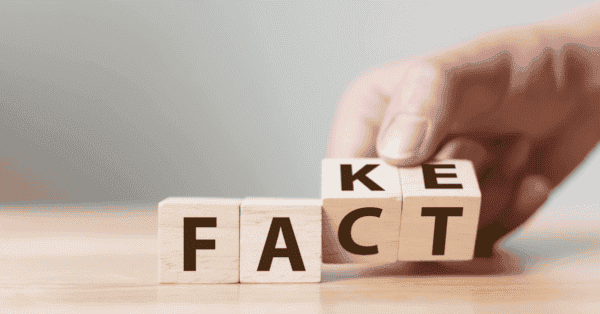Ann Hickman is a 40-year-old working Mum who lives in London with her three children, aged 11, 8 and 6. She writes at www.rainbowsaretoobeautiful.com about raising her autistic and neurotypical family.


It’s important to help children develop their digital literacy and critical thinking to spot the difference between fact and fiction online. Mum Ann shares her family’s personal experience about fake news.
Fake news and misinformation can fool all of us, but young people can be especially vulnerable to dishonest content.
Ann Hickman confesses that even she is occasionally caught out by fake news. “It’s especially hard if it’s a breaking news story when I’m not sure what it should be,” says Ann. “For the children then, we make a point of talking about how people post what might look like news, to try and get you to visit particular websites.”
As children get older, the amount of information they find online increases, and Ann says that her 11-year-old now gets most of his information from his phone, and social media. Thanks to family conversations and school lessons, Ann’s son is fairly private online and doesn’t use his real name, to avoid issues like cyberbullying.
Perhaps the first main experience of fake news was when Ann’s 11-year-old son stumbled across a news story about the end of the world, which quoted various texts and “evidence” to prove the world would end in 2018. “Initially, he was genuinely very scared and upset, because it didn’t look obviously fake,” says Ann. “We talked about how a story can be supported by photos or quotes, but that doesn’t mean they are real. We dealt with it in a very factual way.”
Ann’s advice to other parents is to help children build the critical thinking skills they need to spot fake content online. This might mean building up a mental database of ‘fake’ content so they can spot similar ideas. “We also help them try to consider the story with logic and use things they know to help understand if it’s real or fake news. So, for example, is it being reported on credible news sites? Is the source quoted someone you recognise and trust? What is a credible source?”
Alongside this, Ann told the children that the best approach if you’re unsure if something is real is simply to ask a parent or teacher, or another trusted adult. “We’ve always said they can talk to us about anything they see online. And that includes asking if something is real.
Ann Hickman is a 40-year-old working Mum who lives in London with her three children, aged 11, 8 and 6. She writes at www.rainbowsaretoobeautiful.com about raising her autistic and neurotypical family.

See more resources and articles to help children stay safe online.